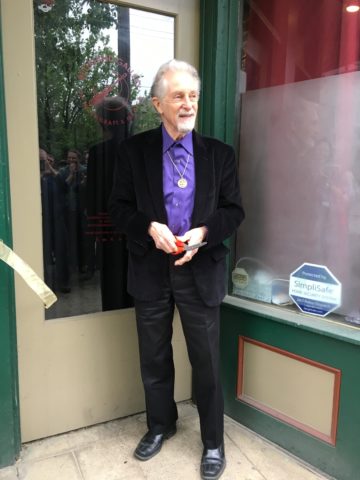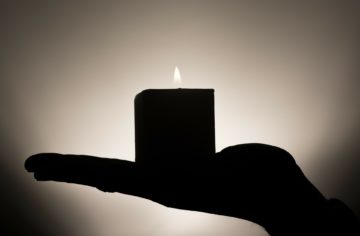TWH –After a high-profile campaign that lasted far longer than many Americans might have preferred, Donald J. Trump won the U.S. presidential election yesterday. While Pagans and polytheists held widely divergent views about who they wanted in the White House, it is now time to consider what a Trump presidency means to members of minority religious groups.
![[Wikimedia Commons]]()
[Wikimedia Commons]
Before turning to the national election, we look at the local level, where politics begins and where many candidates are tested and vetted.
The Wild Hunt has been following the campaigns of two members of our collective communities: Heathen Matt Orlando, who was running for a seat in the House of Representatives, and Cara Schulz, a Hellenic polytheist (and
Wild Hunt reporter) running for the Burnsville City Council.
Orlando, running in Michigan’s ninth district, was not successful. In a statement released on his Facebook page, he wrote, “While I did not win a seat in the house I do not consider the campaign a total loss. We were able to reach more people this election, and show them that the Libertarian Party has so much to offer those that love freedom and that are tired of the big overreaching federal government.”
Schulz, on the other hand, was victorious in her second attempt to join the Burnville, Minnesota city council. She said, “I am so thankful to the residents of Burnsville for supporting me, donating to my campaign, putting one of my signs in their yard, and for voting for me. The trust they have placed in me is deeply humbling and I’ll work hard to be worthy of it. I’ve made a commitment to serve all residents in as open, honest, and transparent way as I’ve run my campaign.”
She also noted, “Not once during the race did any of my opponents or their supporters attempt to use my faith in an appeal to bigotry. This was attempted in my last run for office, but residents here firmly rejected bigotry as a campaign tactic. I encourage those who feel called to public service and happen to be Pagan to run for office. Run, be open and honest, and trust your neighbors. If you aren’t elected the first time, run again.”
* * *
Now, we move to the national election. Below a number of Pagans and polytheists share their views on the results. The statements are a collection of early thoughts from a variety of people who fall under — or near — the Pagan umbrella about the future under a Trump presidency. Some of these passages express strong emotion.
Christine Hoff Kraemer
The election of Donald Trump lets us know that the recently-won rights of women and racial, sexual, and religious minorities are extremely fragile. Based on polls I saw last night, some voters cast their ballots for Trump even while claiming that his treatment of women and minorities bothered them. Even more frightening is the thought that many voted for Trump because of his racism and misogyny, rather than despite them.
This election comes at a time when we need decisive government action to address climate change. If the United States continues to exploit our last remaining fossil fuels instead of aggressively pursuing clean energy and protecting our air and water, the economic and environmental impact of climate change will be much more damaging. Americans have apparently elected Trump in the hope that, despite his callous disregard for working-class people in his business dealings, his administration will recreate traditional working-class jobs. But pollution, food crisis, and the failure to create jobs in important new energy industries will cause enormous suffering among the very people who have rallied around him. This is a dark day for us, and especially for our grandchildren, who will wonder what madness caused the United States to elect a leader so obviously intent on . . . abusing the powers of the presidency.
Yet, looking at history, our ancestors all survived conditions that are now difficult for most Americans to imagine: epidemics, wars, and disasters that destroyed the very fabric of societies. We can survive Trump and a Republican Congress. But to cope with climate change, there is no more time for internet polemic, no time to fight among ourselves, no time for business as usual. Gather your loved ones and neighbors to make shelter: the first drops of rain are falling; the coming storm is here.
Jose Adastra
I’m mostly feeling nauseated. It’s hard to really think clearly through all the fear and worry. When I’m not feeling scared I’ve felt pretty upset. Puerto Rico was thrown into poverty by those seeking to profit from the natural resources on the island, and those wishing to use it as a tax haven.
Understanding why we came from Puerto Rico to Massachusetts is difficult enough. It was difficult to transition but my family figured it out. We made our new home and we adjusted. But now the country that took my birthplace (by force) as a territory and that has effectively stifled trade and installed business legislation that allows people to benefit from the poverty of Puerto Ricans has just finished electing a President that has expressed aggressive policies for deporting immigrants, and that has displayed on various occasions that his respect for women and people of color is completely lacking.
I love Puerto Rico, but we left because the economy was completely destabilized and there were more opportunities in the states. But now after watching my birthplace be taken advantage of and ripped apart by corporate interests for years, I fear that we will be completely abandoned to our current chaotic state. Although I have made my home in Massachusetts now, it is concerning that someone might try to make me leave this home. I must be feeling what a lot of displaced immigrants are feeling right now. America wages wars and claims territory, and then people are displaced. To displace a group of people and then not feel responsible for providing them with homes and a solid support system is completely backwards. We as a country have been displacing people for an absurd amount of time.
We just so happened to, as a country, elect a misogynist, white supremacist, anti-immigrant President. It must feel like a slight to everyone who has already had to start their lives over again. The threat of being deported and having to do it all over again when you have already reestablished your home is unacceptable, and inhumane. While I am optimistic, and enthusiastic about establishing grass root movements to counteract the hate, it is worrisome that there is so much of that hate to counteract.
Lisa Roling
I am truly concerned about the immediate and long-term ramifications of this election. How many people will die as a result of repealing the ACA? How many women will lose their already-limited access to safe abortions, will lose their voice in standing up to sexual violence, will lose the battle for equal pay? How many gay and lesbian couples will see their marriage licenses dissolved and see their rights to their non-biological children threatened? How many religious minorities will face intimidation, deportation, and be forced underground for their (our) own safety?
I’ve been told that I am overreacting, that my fear is unfounded, that change is slow and this President-elect will not be able to pull off the promises for which he was elected. That this is simply a rebuke of the status quo in politics, not a rebuke of the values that I depend on for living freely and safely. Goddess, let that be the case. Let me wake in four years and look back to see you having mangled, beheaded, and devoured us today as an act of destruction that opens the door of creation. And let us be better for it.
![[Pixabay]]()
[Pixabay]
Aline Macha O’Brien
I served as an election worker yesterday. It was a long day (6:00 a.m.-8:30 p.m.), one in which we were surrounded by voters, ballots, and voting apparatus, yet not permitted to speak of the election at all. […] Some voters spoke to us clerks sotto voce about their anxieties and fear for the future. I’m sure they weren’t feeling that way any more than I was. I’ve seen the sun’s annual return for more than seven decades now, and never, never since the first election in which I was eligible to vote –- voters had to be 21 back then –- have I sensed among the people I encounter, and within myself, such anxiety about the election and beyond.
For the first time in the many elections I’ve worked, we had men –- no women did this — coming in expressing distrust of the voting process, certain that their vote wouldn’t be counted. This is offensive to the elections office and all the many workers who strive to conduct the polls with integrity.
I live in a rarefied environment where the voter turnout tends to 80-90%. My fellow Mariners voted nearly 78% for Clinton, but we weren’t worried about Marin; we were worried about the country. We were worried about the future. I worry about what kind of world we are leaving to our children and grandchildren. I can only hope they have the ingenuity to meet the challenges of climate change, social disruption, cynical disengagement.
To the question of what the results might mean for us as American citizens, or as Pagans, I can only say dread. I fear for the reversal of the many programs and policies implemented over the last fifty years. I fear for the health and well-being of all kinds of minorities: ethnic, sexual, religious. I fear for women. We have a few generations of women who have never not known reproductive choice, whereas in my young womanhood safe, legal abortions did not exist. Acceptance of single parenthood didn’t exist. I am appalled at the level of misogyny surrounding this entire election season.
I fear for the health of our planet. I fear the day when we might have no government regulations on toxic emissions. I fear losing clean water. I fear reductions in spending and quality education for all. An educated public benefits everyone.
I sympathize with today’s young parents who try to teach their children kindness and good social skills when they see so-called leaders regularly bully, intimidate, and humiliate other people. I fear that the dystopian society that the incoming President describes in his speeches only serves to further alienate young people. It feeds disengagement and mistrust among a cynical citizenry.
I have an investment in this country that’s given me a comparatively lavish life, an education, health. My ancestors and yours died so that we could enjoy such luxuries. This is our home, one that should show hospitality to others. Our bounty is to be shared.
I am not normally a pessimistic person, but this election gives me pause. If this country manages to survive the incoming administration, if it hasn’t caused irreparable damage to environment, economy, human rights, international relations, then I console myself with two certainties: a lot of these fearful conservative older white men are, and will be, dying off. (So might I.) The other is that those younger citizens who follow will be more colorful and diverse. Minority populations will increase and our country will have no single majority, rather a rainbow of diversity. They are our hope.
Dr. Bones
A massively corrupt technocrat ran for the highest office in the country. According to leaked emails, her team decided to “puff up” the most repulsive enemy combatant they could find, a mulligan of a competitor so vile America would have no choice but to elect her to save themselves.
They focus-grouped almost every issue, had paid internet shills call people anti-woman if they dared not toe the line, and exposed every bit of material they could proving their opponent was a rapey, racist misogynist. He didn’t deny it. And he won.
The United States is a nation of barbarians, a warlike people full of gun-toting madmen high on meth and college intelligentsia that prefer airborne robots do their killing for them. The fatal flaw was the Democrats could never admit they were just as war hungry and greedy as the Republicans, that they were cut from the same stock. They tried to pretend Obama didn’t bomb Libya, didn’t fund Nazis in the Ukraine, even tried to deny that the US created Daesh. They broke the con-man’s only rule: never believe your own bullshit.
The United States will be ruled by the Republicans for the next four years and liberals of all stripes will be forced to confront the grim reality that they have no idea what country they live in. They sold their soul and a movement that was openly socialist to a neo-liberal devil and they came up empty handed. They were worse than stupid and deserve to be punished, and I won’t shed a single tear for them.
There are silver linings here: we can now freely admit a revolution cannot depend on someone’s gender alone, we have seen that the United States is still a gleefully racist country that has no problem backing killer cops, we have learned the “lesser of two evils” doesn’t mean jack when the greater evil can at least admit to being evil, and we have learned that real change is not going to come out of a ballot box.
You want to keep people safe? Start forming solidarity networks. You want to keep emboldened racists from getting froggy? Buy a gun. You want to radically change the structure of the country you live in? Get organized, start conspiring, and make insurrection great again.
Kenya Coviak
To my fellow Americans, I say to you this: I am deeply disappointed in you. But I believe in the goodness of the human soul and heart and it will prevail. I will hold space for all of us, and ask you to do the same and keep us safe as we move forward in the vision of alchemizing the next four years. We are the children of the revolutionaries, always have been, and surviving is what revolutionaries do best.
Be the revolution you want to see. Be the love you want to receive. Be safe, be good to each other, and blessed be. [Coviak published a full editorial at PBN]
Rapid Cabot Freeman
Right now I am so grateful to my god the lord Woden, to all my Pagan & Heathen brothers and sisters at American Pagans For Trump, and all the honest, hardworking Americans that voted for this good and courageous man, Donald J. Trump, who will protect this country I love by making sure no one comes here that doesn’t show good will and an honest desire to be a contributing citizen that respects our laws and customs.
Mr. Trump will put America first by making sure any trade deal we enter into is fair and protects the American worker and American jobs. He will the protect Second Amendment and thus every American citizen’s inborn right to protect themselves & their families. For the first time in awhile I feel very optimistic [about] the future our country will offer to my godson Zakk & all young Americans like him. The first 100 days of Mr. Trump’s good works, I believe, will bear fruit that silences any naysayers. As a proud son of an American combat vet[eran], I hope he passes a law protecting the American flag from being stomped upon and burned because this disrespect to those that serve/served our country I personally find . . . to be revolting and unacceptable.
![Replica Oval Office [Wikimedia]]()
Replica Oval Office [Wikimedia]
Mark Green
What we saw last night is that for nearly half of voting Americans, character doesn’t matter. Bigotry and misogyny don’t matter. Even basic human decency doesn’t matter. All that matters is self-interest, and rage.
Many progressives helped to do this to themselves, promulgating right-wing lies about Hillary with glee. And they are left with exactly the ashes in their mouths that Nader voters tasted in 2000.
The most qualified person running was defeated by a human dumpster fire, and now all the things we thought we had secured in the name of progress are on the chopping block. Way to go, America.
Star Foster
Between Sanders and Trump, the American people have made it pretty clear they are sick of both major parties and politics as usual. I was hoping it was a Lincoln election, but Giuliani had it right: this is Andrew Jackson all over again.
Also, tonight was a pretty clear sign that our democracy works, because the nation exercised its right to elect someone that no one in establishment wanted.
The role of media in this election is fascinating, but they didn’t just get it wrong, they were crafting the narrative rather than reporting the reality. Very embarrassing election for mainstream journalism.
Unlike in 2000, the third party impact probably didn’t swing the election to either candidate. Stein was statistically unimportant. Johnson drew votes pretty equally from both sides, and theoretically should have hurt Trump more than Clinton. McMullin’s major impact was in traditionally-conservative Utah.
I spent the Saturday before election with Pagans all voting for Clinton, Johnson, or Stein, in that order of popularity. I think it is safe to say that most folks in the greater Pagan community are unhappy with the election results, and that vote-shaming of third party supporters already seems to be taking place. I expect the already pronounced emphasis on liberal politics in modern Paganism to become stronger in the next four years, and it will be interesting to see if the theological/worldview schism in Paganism deepens in the next four years if moderates and conservatives no longer feel welcome under the big umbrella.
Byron Ballard
Some people are afraid and shocked at this outcome. Others are relieved, feeling they — at last! — have some agency in their lives. Everyone is on edge because these are challenging times. But here’s the truth: all of us are stronger than we know, and this is an opportunity to break down all the imposed barriers and build the world we want and need. That will take courage and hard work and resilience.
A political savior is not coming, and we can’t wait around for that. For a decade I’ve been writing about Tower Time and the fall of patriarchy’s toxic systems. It is writ large today; our longing and fear and need. These are the times we were made for. We’re rolling up our sleeves and creating a new way to be. Per ardua ad terra.
Elena Rose
I am so scared, and so angry, and so sad. This election was a referendum on the people I love, on whether or not we deserve to live and exist as human beings, and I have been watching those percentages of our neighbors pile up, and it is hard not to succumb to that collapsing feeling that lets me know it will be people I love with our backs first against the wall. There is no unlearning this, un-confirming this thing I already knew, about this place I live.
I am at a loss, friends. One way or another, we will make it through. One way or another, we will be looking after each other.
Those of you they won’t come for first: I hope you’re ready to watch out for those of us at the top of the list.
* * *
The conversations will continue as the government transitions, and the election day fog lifts. This 2016 election may continue to bring controversy and even stories yet unwritten. Media channels, such as NPR, are now reporting that Clinton lost the election, but won the popular vote; she would be the fifth candidate in U.S. history to lose in this fashion.
As in this case, the Electoral College results can vary widely from the popular vote, because most states award all electoral votes to the winning candidate. While electors are pledged to vote for a particular candidate, so-called “faithless electors” have occasionally abstained or voted for someone else entirely. However, they typically act alone, impacting only one election in 1836.
The electors will cast their votes Dec. 19, and the ballots will then be counted January 6, making the 2016 election results official. The new president takes the oath of office Jan 20.


![Photo that started the #whatwitcheslooklike viral campaign 2016 [Courtesy Photo]](http://wildhunt.org/wp-content/uploads/2016/11/14856078_10155377416279829_7281916187702267702_o-e1478366268512-360x367.jpg)

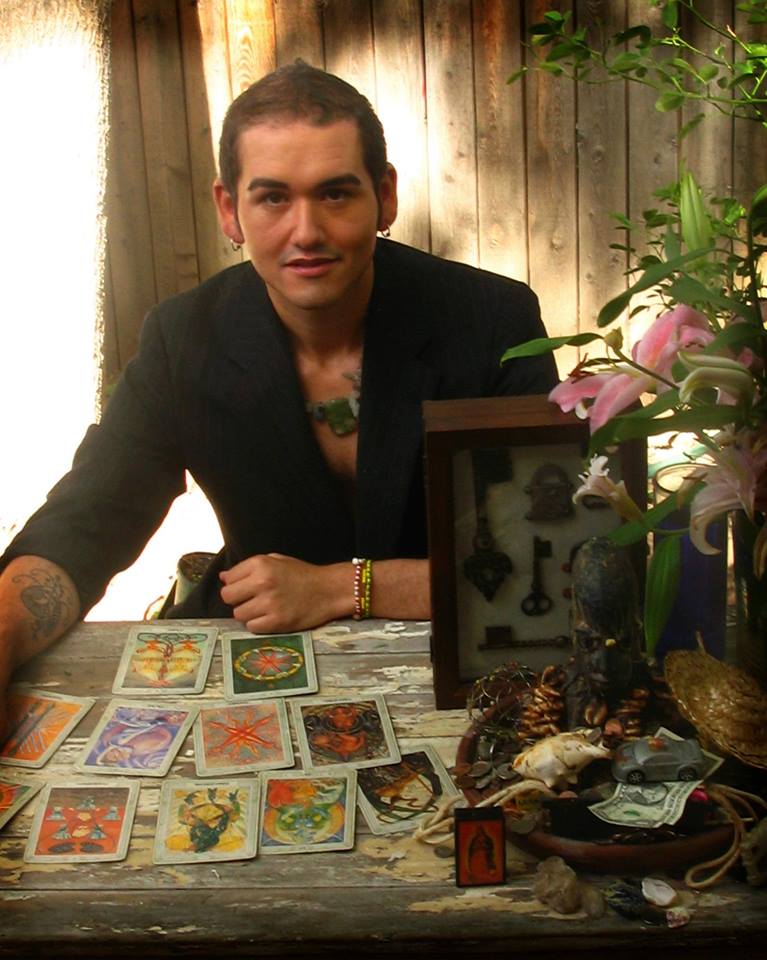



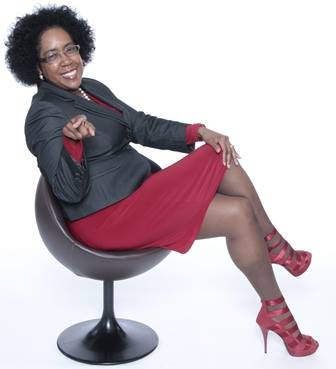



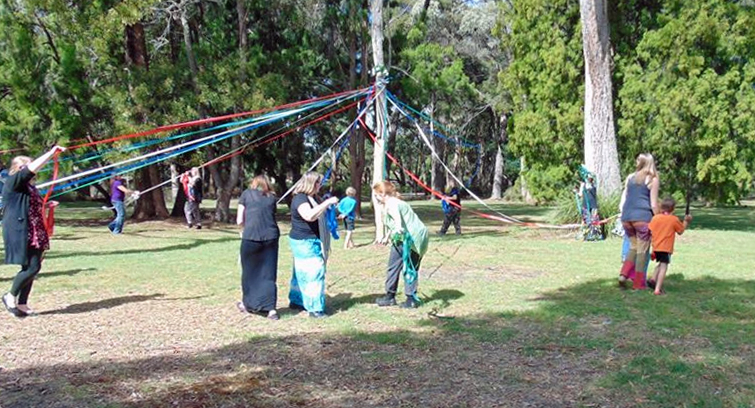



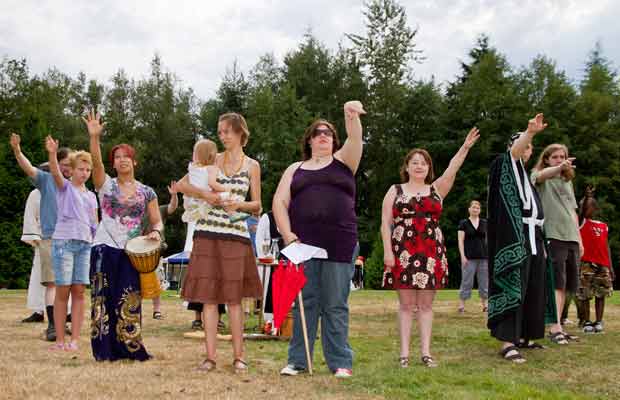










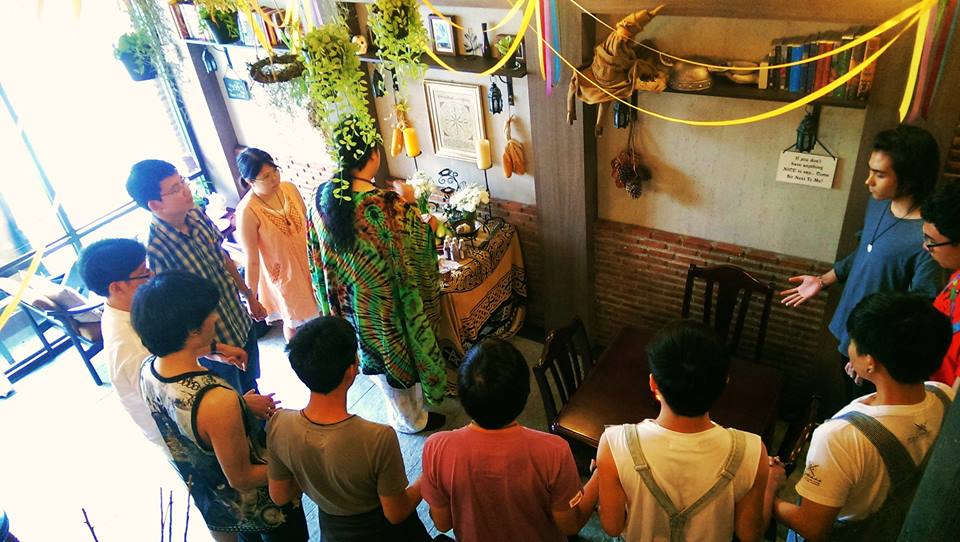




![[Wikimedia Commons]](http://upload.wikimedia.org/wikipedia/commons/2/2a/Trump_%26_Clinton.jpg)
![[Pixabay]](http://wildhunt.org/wp-content/uploads/2016/11/american-flag-795303_1920-360x270.jpg)
![Replica Oval Office [Wikimedia]](http://wildhunt.org/wp-content/uploads/2016/11/1024px-Bush_Library_Oval_Office_Replica-360x230.jpg)
 To begin 2017, polyanimist Aldrin shares a
To begin 2017, polyanimist Aldrin shares a 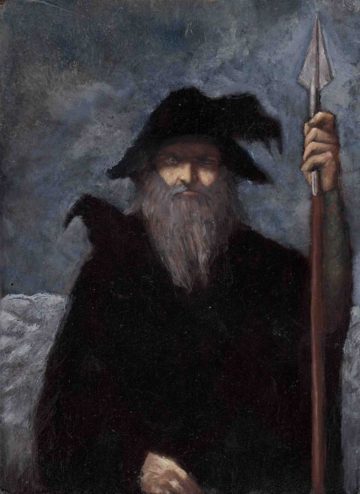
![[Pixabay]](http://wildhunt.org/wp-content/uploads/2017/02/prison-553836_1280-360x240.jpg)
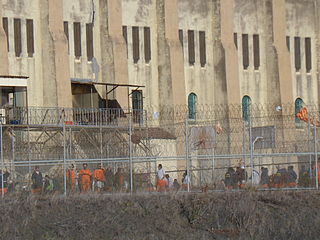
![[Penny White]](http://wildhunt.org/wp-content/uploads/2017/03/16998119_10210599551017795_8769480127058434412_n-360x360.jpg)
 By and large the Muslim and Jewish communities are taking advantage of the attacks to heal breaches between them,” he added. “Jews coming out to help clean up after attacks on Muslims and vice versa.”
By and large the Muslim and Jewish communities are taking advantage of the attacks to heal breaches between them,” he added. “Jews coming out to help clean up after attacks on Muslims and vice versa.”
![[Public Domain / Pixabay]](http://wildhunt.org/wp-content/uploads/2017/04/scaliger-castle-943516_1280-360x240.jpg)
![[Public Domain / Pixabay]](http://wildhunt.org/wp-content/uploads/2017/04/sweden-123784_1280-360x243.jpg)





 As the light began to return and the daze from the 2016 holiday celebrations faded into the past, the new year promised to be an interesting one, as the U.S. presidential inauguration drew closer. However, as American politics took and held center stage for much of the year, there were other things going on in the collective communities that make up the Pagan, Heathen, and polytheist worlds.
As the light began to return and the daze from the 2016 holiday celebrations faded into the past, the new year promised to be an interesting one, as the U.S. presidential inauguration drew closer. However, as American politics took and held center stage for much of the year, there were other things going on in the collective communities that make up the Pagan, Heathen, and polytheist worlds.


